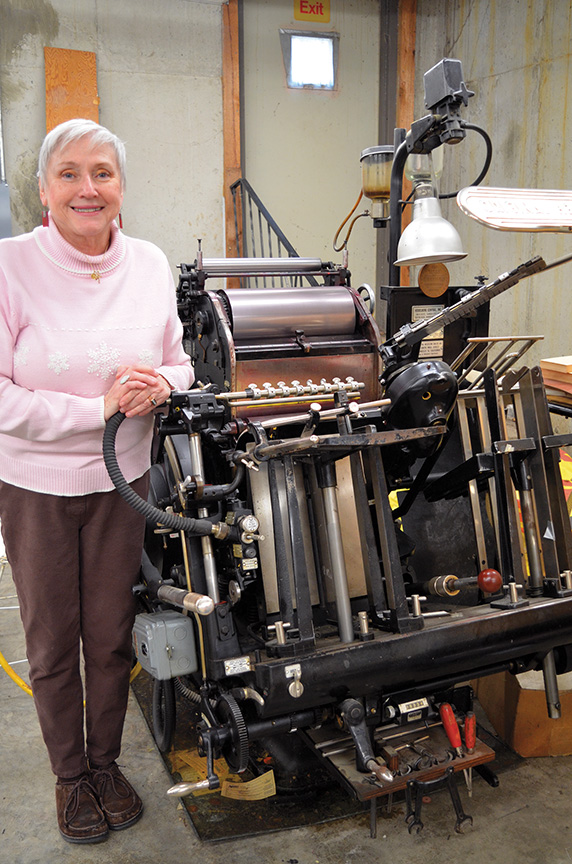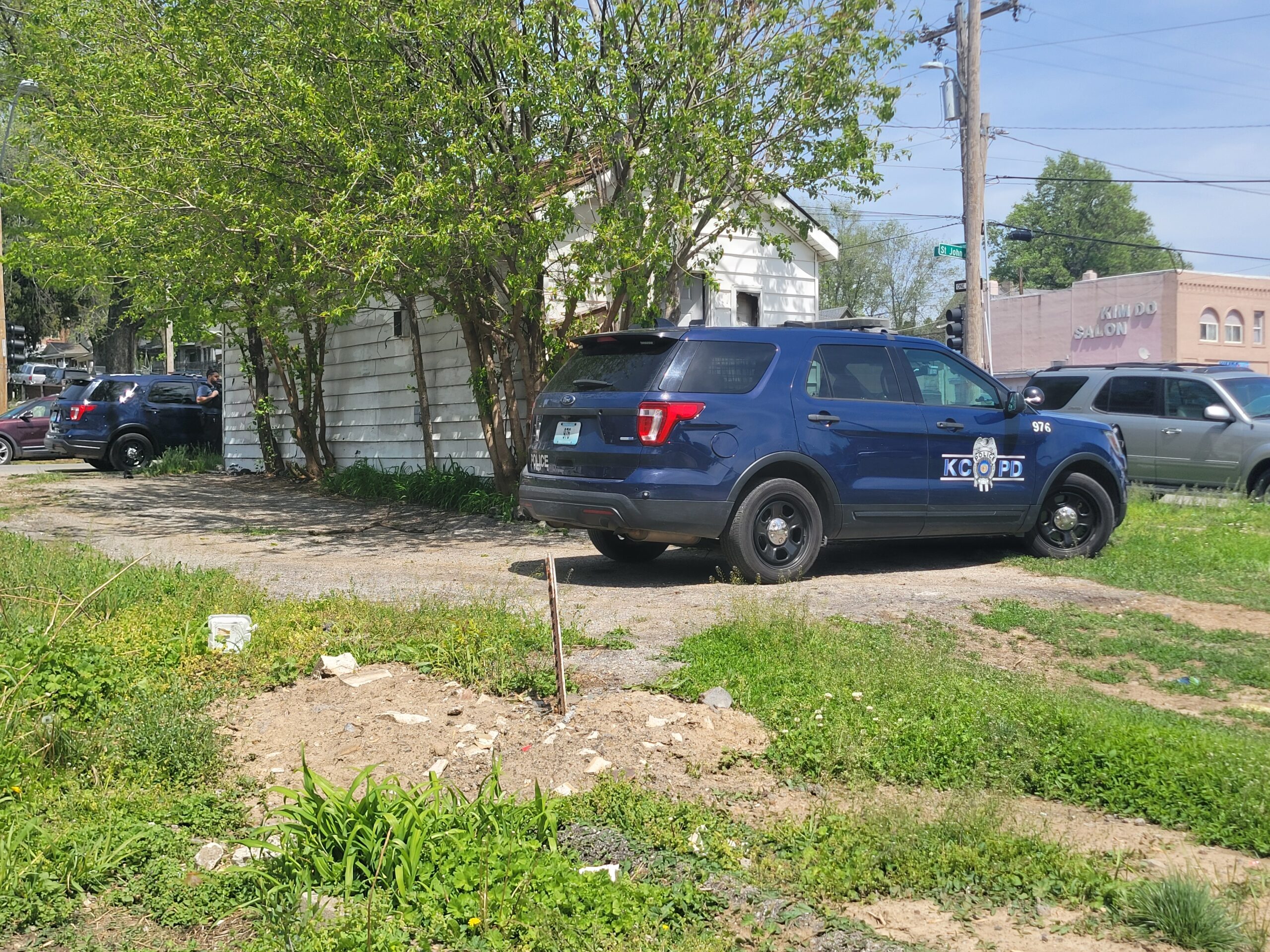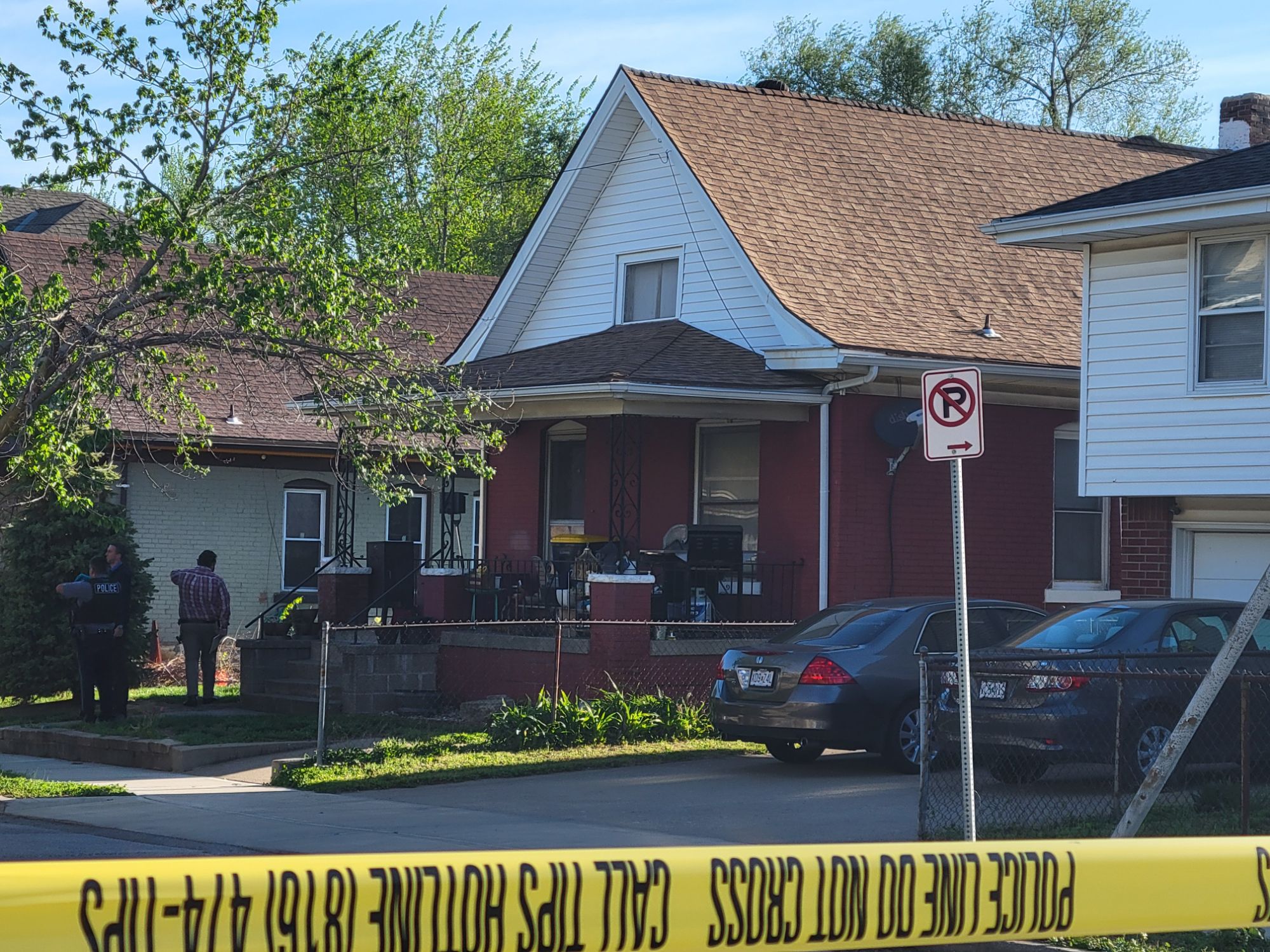
By Abby Hoover
For 55 years, ADCO Litho Plate has fulfilled Kansas City’s printing needs, operating out of its shop at 6043 E Truman Rd.
Owner Theresa “Terry” Cunningham is proud to continue her family legacy. In 1971, Terry was handed her father’s business, ADCO Litho Plate, at the age of 18.
After suffering a major coronary, her father, Chester Banks, was told by doctors he couldn’t continue the business, but he refused to shut down, handing it over to Terry, a recent high school graduate, and her mother, Paulette.
“I owe too many people too much money,” Terry remembers her father saying. “I’m not going to take bankruptcy. You girls are going to run it.”
As young as Terry was at the time, she was no novice in the print industry. She had been working in the shop after school and during the summers since she was around 14 years old, just another in a long list of activities she and her sister had enjoyed with their father. Despite her youth, Terry’s father had faith that she could take over the business.
“My dad didn’t have any sons, so we did everything that he would do with a boy,” Terry recalled. “We learned how to shoot a bow and arrow, learned how to shoot a gun, we went fishing, he taught us how to play baseball, football, basketball; he was a man before his time, actually. He always said, ‘You can do whatever you think you can do.’”
Chester’s confidence steeled Terry and her mother for the task, and they succeeded in the business, working together side-by-side for decades. Paulette lived to be 92 years old, working at ADCO Litho Plate until she was 80.
The story of how Chester started the business reaches back to WWII and across the Atlantic to Europe.
Chester was in the Army during the war, a time, Terry said, he never talked about unless it was to tell his love story.
Chester met Paulette in Paris during the war and learned fluent French to be able to court her. After the war, the couple married and remained in Paris to celebrate.
Paulette’s brother was a printer and took Chester to work with him one day, taking him up on the scaffolding of a printer to show him the process of printing large-scale military maps.
“He became enthralled,” Terry said.
After a year in Paris, the couple returned to the United States and settled in Marshall, Mo., where Chester decided he wanted to become a printer. Through the GI Bill, he was able to take classes during the day and drive taxis at night to provide for him and his new bride.
Eventually, they moved to Kansas City and in 1967, he decided to start his own business as a lithographer.
“You couldn’t print without a plate back in those days,” Terry said. “Now, it’s all digital.”
Chester decided to expand into printing when he saw the overflow of the printing needs in the city. Eventually, ADCO Litho Plate was able to take on large local clients such as Sears, Montgomery Wards and Safeway.
But after her dad’s health issues left her an 18-year-old female business owner in 1971, Terry said she was forced to “resell herself.”
“I was not accepted,” Terry said.
She recounted a story of talking to a long-time client after taking over the business, letting the owner know the situation and him being unsure if he was going to continue printing with ADCO.
“You’re not going to see any difference between what you’ve gotten as a product that you get from me that you got from my dad,” she remembered telling the man. “I tell you the truth, you know who has been doing the work? My mom, me, and my sister.”
“Alright,” he responded. “I’ll give you a try.”
Another instance she recalled was the time Laidlaw acquired her client, Mayflower Contract Services.
After asking for a new logo to begin printing, Terry said the owner did not want to continue the contract, despite positive customer satisfaction and good prices.
“Is it because I’m a woman?” she asked him face-to-face. “It was dead silent and he just looked at me and I said, ‘Oh, I see how it is.’ I lost a $20,000-a-month customer because of gender. That’s how the world is sometimes.”
When asked what she would say to a new generation of women coming into their own business and facing the same challenges she did nearly 50 years ago, Terry said she would advise them to do business the old-fashioned way: in person.
“These days, you get no personal contact to get to know a person,” she said. “You get an email or a voicemail. You cannot build that kind of business relationship with the method that we communicate with our customers today. If you can get face-to-face with them and become personal with them, I think a woman has a much better chance of maybe acquiring the business than over the phone or on an email because they don’t get to know you.”
As if the hurdle of being a female business owner in a male-dominated business world wasn’t difficult enough, Terry said she also had to continue to adjust to changes in printing, namely “going digital.”
It was scary and uncertain, she said. She began to hire young graphic designers to come in and help her transition into the digital age and she would glean knowledge from them as the years went one.
“Now, I’m a one-woman show who wears many hats,” Terry said.
In the early years, the process of printing was relatively grueling. Cunningham still remembers the process in great detail, as if it’s seared into her memory. It required great patience, and attention to detail was needed at every step along the way. Cunningham remembers using X-Acto knives to carve out blocks of color, and a multi-phased process that would take hours upon hours to complete.
“I would think, from start to finish, it was probably 8-9 hours to go to press,” remembers Cunningham. “It was very time-consuming.”
As printing moved nearly completely digital, she said she got rid of her presses. In the large, open warehouse, black scuff marks outline the spot where the presses once stood.
The only press Terry owns today is an old Heidelberg windmill press, still in working condition, but sits unused beneath a large tarp.
Uncovering it and turning it on, the motor hums, the flywheel spins, and the two arms rotate in a fluid motion — the grippers empty.
“There was a PBS special one time on television of the 100 greatest inventions,” she said. “The number one was the Gutenberg printing press because it gave information, news, and educated the masses. Now we’re going to be gone and obsolete. That’s sad.”
While her Heidelberg will remain covered in a nearly empty warehouse, Terry said she is still hopeful for the future.
“As long as I’m here, I will be printing. I’m the best-kept secret of the Northeast.”
Despite falling and breaking both her feet in October 2021, Terry isn’t planning to retire any time soon. After a surgery and a long recovery, she’s looking forward to the day she can return to her shop and continue her family’s legacy. She prides herself on being a fair businesswoman, and welcomes the opportunity to bid for work. In fact, Terry says that her bids tend to be considerably lower than her rivals.
ADCO Litho Plate at 6043 E Truman Rd., specializes in printing wedding invitations, brochures, business cards, carbonless forms, envelopes, fliers, labels, letterhead, banners and signs, and specialty advertising. The certified Women Business Enterprise (WBE) also offers binding, graphic design, layout, and other services.
For inquiries, stop by the shop Monday through Thursday from 8 a.m. to 4 p.m. and Fridays from 8 a.m. to 12 p.m., call (816) 241-2754, or email adco@prodigy.net.
This information is provided to you through the Independence Avenue CID (Community Improvement District) the Northeast Kansas City Chamber Of Commerce, and the Northeast News.


















